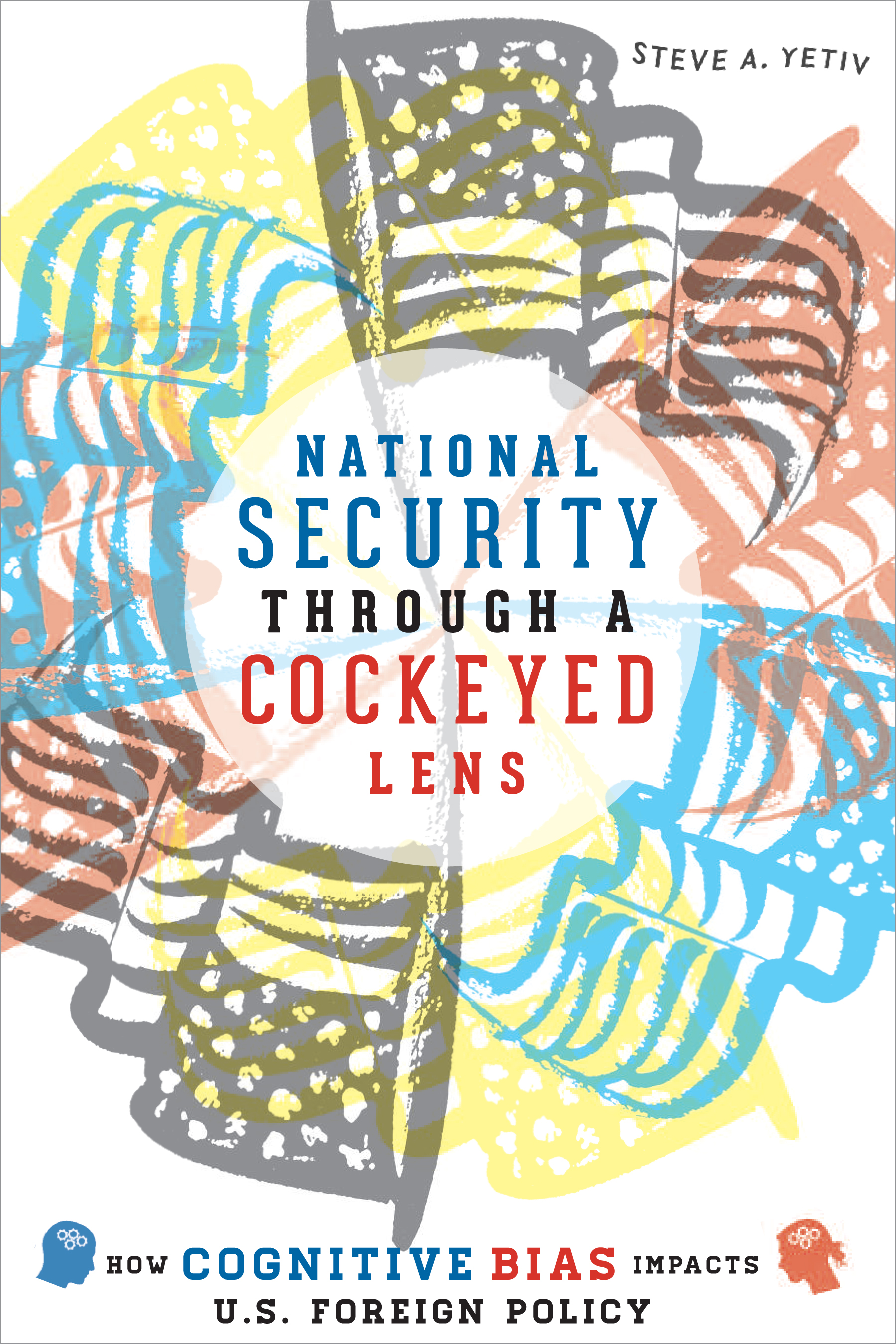New Book by ODU’s Steve Yetiv Examines How Biases Have Hurt U.S. National Security
October 29, 2013

Steve A. Yetiv, Louis I. Jaffe Professor of Political Science and International Studies at Old Dominion, has written his seventh book, "National Security through a Cockeyed Lens: How Cognitive Bias Impacts U.S. Foreign Policy."
The book, which will be released on Tuesday, Nov. 5, examines how mental errors of cognitive biases undermine good decision making. Yetiv, a worldwide expert on issues surrounding global petroleum supply and security, writes how factors such as overconfidence have undermined decision making and have hurt U.S. national security more than is currently understood.
The book, published by Johns Hopkins University Press and available for preorder on Amazon HERE, explains how decision making can be improved at the individual and national level, at home and abroad, resulting in better global outcomes.
In advance press, Johns Hopkins University Press quotes scholars, offering testimonials about Yetiv and the book:
"Steve Yetiv is an expert in American foreign policy, security studies, and interdisciplinary approaches toward international politics. He is the ideal person to write this particular book, which applies political psychology to the study of decision processes." - Patrick James, University of Southern California
"Anyone who has been involved with policy making and execution ... has experienced many of the cognitive biases and the personal and organizational dynamics discussed in Steve Yetiv's book ... There are many times I wish I had had a book like this to wave around and point to, or quietly place in front of people to suggest they pause and think about their thinking, and I am sure that in the future I will use it as a reference." - Frédéric Ruiz-Ramón, Perscitus International LLC; former U.S. Department of Defense official
Yetiv draws on four decades of psychological, historical, economic and political science research on cognitive biases to illuminate some of the key pitfalls in our leaders' decision-making processes and some of the mental errors we make in perceiving ourselves and the world.
Tracing five U.S. national security episodes - the 1979 Soviet invasion and occupation of Afghanistan; the Iran-Contra affair; the rise of al-Qaeda, leading to the 9/11 attacks; the 2003 U.S.-led invasion of Iraq; and the development of U.S. energy policy - Yetiv reveals how a dozen cognitive biases have been more influential in impacting U.S. national security than commonly believed or understood. And he offers a new perspective on how America got involved in the Middle East, by revealing the role of cognitive biases in its decisions and those of others, and how they affected outcomes over time.
The book, which is intended for both academic and nonacademic audiences, focuses on one primary bias in each episode, and Yetiv demonstrates how two or more biases can feed off each other. The final chapter examines a range of debiasing techniques or approaches for trying to limit cognitive biases. While hundreds of experiments show that debiasing is very difficult, partly due to the entrenched nature of biases, Yetiv examines which approaches are most likely to work, especially with regard to foreign policy.
Yetiv's previous books include "Explaining Foreign Policy," "The Petroleum Triangle" and "The Absence of Grand Strategy." The American Library Association has twice recognized him with Choice Outstanding Academic Book awards. Yetiv has also published more than 250 op-eds in national publications such as The New York Times, The Washington Post and The Christian Science Monitor.
His high standing as a scholar and a teacher brought him a 2012 Outstanding Faculty Award, which is sponsored by the State Council of Higher Education for Virginia (SCHEV).
Yetiv was recognized by SCHEV for his "superior performance in teaching, research and service."

